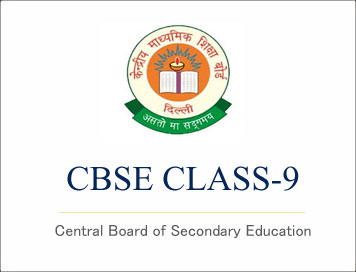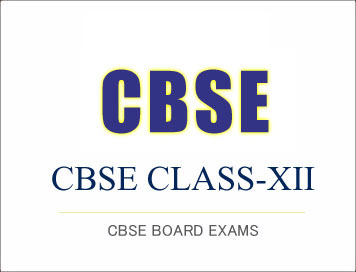CBSE PORTAL : CBSE Class-9 Syllabus 2018-19 (Carnatic Music) | |
- CBSE Class-9 Syllabus 2018-19 (Carnatic Music)
- CBSE Class-9 Syllabus 2018-19 (Social Science)
- CBSE Class-12 Syllabus 2018-19 (Physics)
- CBSE Class-12 Syllabus 2018-19 (Mathematics)
| CBSE Class-9 Syllabus 2018-19 (Carnatic Music) Posted: 28 Mar 2018 12:40 AM PDT | |||||||||||||||||||||||||||||||||||||||||||||||||||||||||||||||||||||||||
| CBSE Class-9 Syllabus 2018-19 (Social Science) Posted: 28 Mar 2018 12:22 AM PDT | |||||||||||||||||||||||||||||||||||||||||||||||||||||||||||||||||||||||||
| No. | Units | Marks | Periods |
| I | India and the Contemporary World - I | 20 | 60 |
| II | Contemporary India - I | 20 | 55 |
| III | Democratic Politics - I | 20 | 50 |
| IV | Economics | 20 | 50 |
| Total | 80 | 215 |
Click Here To Download Full Syllabus
Courtesy: CBSE
<< Go Back to Main Page
CBSE Class-12 Syllabus 2018-19 (Physics)
Posted: 27 Mar 2018 11:52 PM PDT
CBSE Class-12 Syllabus 2018-19 (Physics)
Senior Secondary stage of school education is a stage of transition from general education to discipline-based focus on curriculum. The present updated syllabus keeps in view the rigour and depth of disciplinary approach as well as the comprehension level of learners. Due care has also been taken that the syllabus is comparable to the international standards. Salient features of the syllabus include:
- Emphasis on basic conceptual understanding of the content.
- Emphasis on use of SI units, symbols, nomenclature of physical quantities and formulations as per international standards.
- Providing logical sequencing of units of the subject matter and proper placement of concepts with their linkage for better learning.
- Reducing the curriculum load by eliminating overlapping of concepts/content within the discipline and other disciplines.
- Promotion of process-skills, problem-solving abilities and applications of Physics concepts.
Besides, the syllabus also attempts to
- strengthen the concepts developed at the secondary stage to provide firm foundation for further learning in the subject.
- expose the learners to different processes used in Physics-related industrial and technological applications.
- develop process-skills and experimental, observational, manipulative, decision making and investigatory skills in the learners.
- promote problem solving abilities and creative thinking in learners.
- develop conceptual competence in the learners and make them realize and appreciate the interface of Physics with other disciplines.
CLASS XII (2018-19)
(THEORY)
Time: 3 hrs.
Max Marks: 70
|
|
| No. of Periods | Marks |
| Unit–I | Electrostatics |
22 |
15 |
|
| Chapter–1: Electric Charges and Fields | ||
|
|
Chapter–2: Electrostatic Potential and Capacitance | ||
| Unit-II | Current Electricity |
20 | |
|
| Chapter–3: Current Electricity | ||
| Unit-III | Magnetic Effects of Current and Magnetism |
22 |
16 |
|
| Chapter–4: Moving Charges and Magnetism | ||
|
| Chapter–5: Magnetism and Matter | ||
| Unit-IV | Electromagnetic Induction and Alternating Currents |
20 | |
|
| Chapter–6: Electromagnetic Induction | ||
|
| Chapter–7: Alternating Current | ||
| Unit–V | Electromagnetic Waves |
04 |
17 |
|
| Chapter–8: Electromagnetic Waves | ||
| Unit–VI | Optics |
25 | |
|
| Chapter–9: Ray Optics and Optical Instruments | ||
|
| Chapter–10: Wave Optics | ||
| Unit–VII | Dual Nature of Radiation and Matter |
08 |
10 |
|
| Chapter–11: Dual Nature of Radiation and Matter | ||
| Unit–VIII | Atoms and Nuclei |
14 | |
|
| Chapter–12: Atoms | ||
|
| Chapter–13: Nuclei | ||
| Unit–IX | Electronic Devices |
15 |
12 |
|
| Chapter–14: Semiconductor Electronics: Materials, Devices and Simple Circuits | ||
| Unit–X | Communication Systems |
10 | |
|
| Chapter–15: Communication Systems | ||
| Total | 160 | 70 | |
Click Here To Download Full Syllabus
Courtesy: CBSE
<< Go Back to Main Page
CBSE Class-12 Syllabus 2018-19 (Mathematics)
Posted: 27 Mar 2018 11:46 PM PDT
CBSE Class-12 Syllabus 2018-19 (Mathematics)
The Syllabus in the subject of Mathematics has undergone changes from time to time in accordance with growth of the subject and emerging needs of the society. Senior Secondary stage is a launching stage from where the students go either for higher academic education in Mathematics or for professional courses like Engineering, Physical and Bioscience, Commerce or Computer Applications. The present revised syllabus has been designed in accordance with National Curriculum Framework 2005 and as per guidelines given in Focus Group on Teaching of Mathematics 2005 which is to meet the emerging needs of all categories of students. Motivating the topics from real life situations and other subject areas, greater emphasis has been laid on application of various concepts.
Objectives
The broad objectives of teaching Mathematics at senior school stage intend to help the students:
- to acquire knowledge and critical understanding, particularly by way of motivation and visualization, of basic concepts, terms, principles, symbols and mastery of underlying processes and skills.
- to feel the flow of reasons while proving a result or solving a problem.
- to apply the knowledge and skills acquired to solve problems and wherever possible, by more than one method.
- to develop positive attitude to think, analyze and articulate logically.
- to develop interest in the subject by participating in related competitions.
- to acquaint students with different aspects of Mathematics used in daily life.
- to develop an interest in students to study Mathematics as a discipline.
- to develop awareness of the need for national integration, protection of environment, observance of small family norms, removal of social barriers, elimination of gender biases.
- to develop reverence and respect towards great Mathematicians for their contributions to the field of Mathematics.
CLASS-XII
(2018-19)
One Paper
Time: 3 hrs.
Max Marks. 100
| Units | No. of Periods | Marks | |
| I | Relations and Functions | 30 | 10 |
| II | Algebra | 50 | 13 |
| III | Calculus | 80 | 44 |
| IV | Vectors and Three - Dimensional Geometry | 30 | 17 |
| V | Linear Programming | 20 | 06 |
| VI | Probability | 30 | 10 |
| Total | 240 | 100 |
Unit-I: Relations and Functions
1. Relations and Functions ; 15 Periods
Types of relations: reflexive, symmetric, transitive and equivalence relations. One to one and onto functions, composite functions, inverse of a function. Binary operations.
2. Inverse Trigonometric Functions 15 Periods
Definition, range, domain, principal value branch. Graphs of inverse trigonometric functions. Elementary properties of inverse trigonometric functions.
Unit-II: Algebra
1. Matrices ; 25 Periods
Concept, notation, order, equality, types of matrices, zero and identity matrix, transpose of a matrix, symmetric and skew symmetric matrices. Operation on matrices: Addition and multiplication and multiplication with a scalar. Simple properties of addition, multiplication and scalar multiplication. Non- commutativity of multiplication of matrices and existence of non-zero matrices whose product is the zero matrix (restrict to square matrices of order 2).Concept of elementary row and column operations. Invertible matrices and proof of the uniqueness of inverse, if it exists; (Here all matrices will have real entries).
2. Determinants ; 25 Periods
Determinant of a square matrix (up to 3 x 3 matrices), properties of determinants, minors, co-factors and applications of determinants in finding the area of a triangle. Adjoint and inverse of a square matrix. Consistency, inconsistency and number of solutions of system of linear equations by examples, solving system of linear equations in two or three variables (having unique solution) using inverse of a matrix.
Click Here To Download Full Syllabus
Courtesy: CBSE
<< Go Back to Main Page
| You are subscribed to email updates from CBSE PORTAL : CBSE, ICSE, NIOS, JEE-MAIN, AIPMT Students Community. To stop receiving these emails, you may unsubscribe now. | Email delivery powered by Google |
| Google, 1600 Amphitheatre Parkway, Mountain View, CA 94043, United States | |

